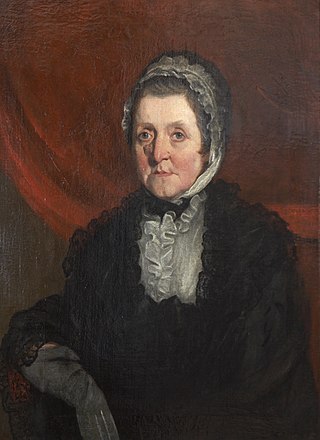Related Research Articles

Maria Edgeworth was a prolific Anglo-Irish novelist of adults' and children's literature. She was one of the first realist writers in children's literature and was a significant figure in the evolution of the novel in Europe. She held critical views on estate management, politics and education, and corresponded with some of the leading literary and economic writers, including Sir Walter Scott and David Ricardo. During the first decade of the 19th century she was one of the most widely read novelists in Britain and Ireland. Her name today most commonly associated with Castle Rackrent, her first novel in which she adopted an Irish Catholic voice to narrate the dissipation and decline of a family from her own landed Anglo-Irish class.
This article contains information about the literary events and publications of 1829.
This article contains information about the literary events and publications of 1816.
This article contains information about the literary events and publications of 1812.
This article contains information about the literary events and publications of 1795.

Catherine Grace Frances Gore, a prolific English novelist and dramatist, was the daughter of a wine merchant from Retford, Nottinghamshire. She became among the best known of the silver fork writers, who depicted gentility and etiquette in the high society of the Regency period.

Alleyne FitzHerbert, 1st Baron St Helens, PC was a British diplomat. He was Minister Plenipotentiary to Russia from 1783 to 1788, appointed Chief Secretary for Ireland and a member of the Privy Council in 1787, serving in the former position until 1789. He was Minister plenipotentiary to Spain from 1790 to 1794.
Anna Maria Hall was an Irish novelist who often published as "Mrs. S. C. Hall". She married Samuel Carter Hall, a writer on art, who described her in Retrospect of a Long Life, from 1815 to 1883. She was born Anna Maria Fielding in Dublin, but left Ireland for England at the age of 15.

Henry Gally Knight, F.R.S. was a British politician, traveller and writer.
Richard Lovell Edgeworth was an Anglo-Irish politician, writer and inventor. He had 22 children.
Alethea Lewis was an English novelist, born at Acton, near Nantwich, Cheshire. She also used the pseudonym Eugenia de Acton. Her subject-matter centres on her profound Christianity and her belief in the rewards of virtue. Her work displays great erudition.

Somersal Herbert Hall is a privately owned timber-framed 16th-century country house at Somersal Herbert, near Ashbourne, Derbyshire, in England. It is a Grade I listed building.

Mary Palmer was a British author from Devon who wrote Devonshire Dialogue, once considered the "best piece of literature in the vernacular of Devon." She was the mother of painter Theophila Gwatkin and sister of the artists Sir Joshua Reynolds and Frances Reynolds and of the pamphleteer Elizabeth Johnson.
Maria Elizabetha Jacson was an eighteenth-century English writer, as was her sister, Frances Jacson (1754–1842), known for her books on botany at a time when there were significant obstacles to women's authorship. In some sources her name appears as Maria Jackson, Mary Jackson or Mary Elizabeth Jackson. She spent most of her life in Cheshire and Derbyshire, where she lived with her sister following her father's death.
Jacson is both a surname and a given name. Notable people with the name include:

Mariquita Dorotea Francesca Tennant born Mariquita Dorotea Francesca Eroles was a Spanish-born social reformer. She opened her house and started to help abused women around Windsor in England.

Mothers of the Novel: 100 Good Women Writers Before Jane Austen (1986), by Dale Spender, is a foundational study for the reclamation project central to feminist literary studies in English in the late 1980s and 1990s.
References
- 1 2 3 4 5 Percy 2015.
- ↑ Bibliographical details are taken from the British Library Integrated Catalogue.
- ↑ Antiquarian book catalogue Women III. Women Writers – Novelists, Essayists & Poets – J-Q Retrieved 19 November 2010. May require registration.
- ↑ The question was settled in a study by J. Percy in the British Library Journal, 1997: "An unrecognized novelist: Frances Jacson (1754–1842)".
- ↑ Maria Edgeworth wrote to Miss Waller (aunt of her stepmother) on 24 November 1818, "We have not yet seen any visitors since we came here and have paid only one visit to the Miss Jacksons [sic]. Miss Fanny you know is the author of Rhoda – Miss Maria Jackson the author of Dialogues on botany..." Retrieved 19 November 2010.